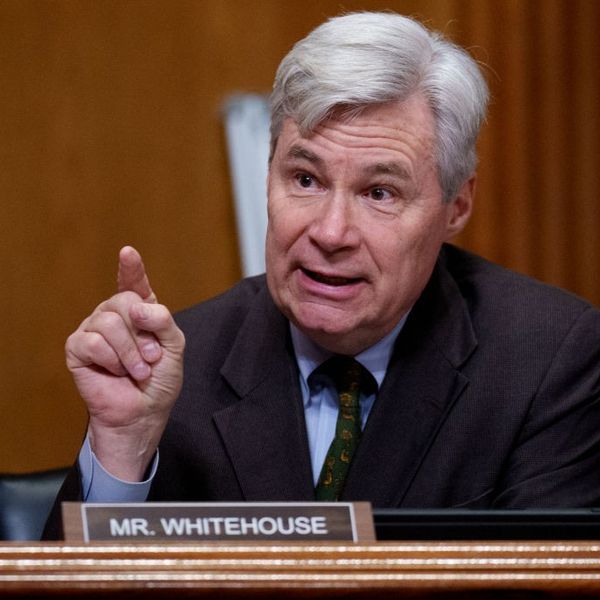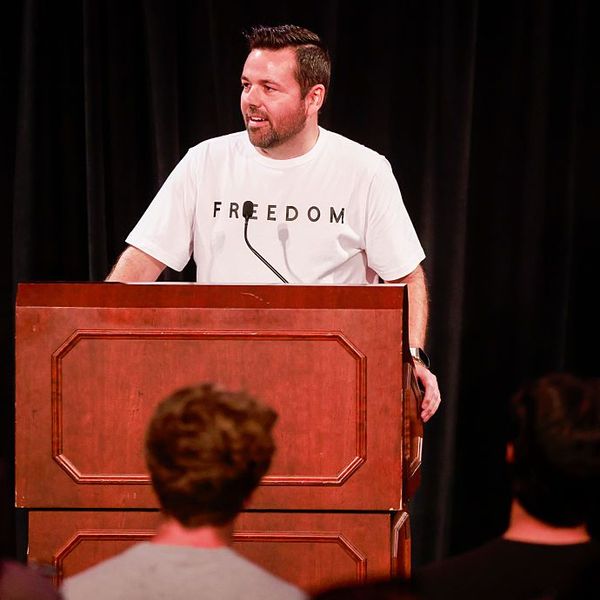NC Republicans' "Power Grab" Hits Last-Minute Roadblock
Law that would have revamped elections panel put on hold
A North Carolina judge on Friday put a temporary block on a Republican-backed law that would have limited the power of Democratic Governor-elect Roy Cooper.
Cooper, set to take his oath just minutes into the new year, filed suit on Friday to block the law, which was passed two weeks ago as part of "unprecedented power grabs" by Republican lawmakers.
It was set to take effect Sunday, and "amounts to a sweeping redesign of the panel that administers and regulates elections in a state that has been steeping in political conflict," the New York Times writes.
Specifically, as the Associated Press reports, it would "convert the five-member state elections board from one with a partisan majority matching the governor's into a bipartisan body with equal numbers of Republicans and Democrats. County election boards would have two members from each party, rather than the current three members with a majority from the governor's party."
Cooper's lawsuit argued that the changes "are unconstitutional because they violate the separation of powers provisions enshrined in the North Carolina Constitution by shifting control over that agency away from the governor to the General Assembly."
The incoming governor added in a statement: "A tie on a partisan vote would accomplish what many Republicans want: making it harder for North Carolinians to vote. It will result in elections with longer lines, reduced early voting, fewer voting places, little enforcement of campaign finance laws, indecision by officials and mass confusion."
Wake County Superior Court Judge Don Stephens gave Cooper "a small victory," putting a temporary hold on the law and scheduling another hearing for case on Thursday, as The News & Observer reports.
Meanwhile, in the face of the anti-LGBTQ ordinance HB2 as well as other aspects state Republicans' "legislative coup," calls are continuing for an economic boycott of the state, which, according to one observer, is no longer "a fully functioning democracy."
An Urgent Message From Our Co-Founder
Dear Common Dreams reader, The U.S. is on a fast track to authoritarianism like nothing I've ever seen. Meanwhile, corporate news outlets are utterly capitulating to Trump, twisting their coverage to avoid drawing his ire while lining up to stuff cash in his pockets. That's why I believe that Common Dreams is doing the best and most consequential reporting that we've ever done. Our small but mighty team is a progressive reporting powerhouse, covering the news every day that the corporate media never will. Our mission has always been simple: To inform. To inspire. And to ignite change for the common good. Now here's the key piece that I want all our readers to understand: None of this would be possible without your financial support. That's not just some fundraising cliche. It's the absolute and literal truth. We don't accept corporate advertising and never will. We don't have a paywall because we don't think people should be blocked from critical news based on their ability to pay. Everything we do is funded by the donations of readers like you. Will you donate now to help power the nonprofit, independent reporting of Common Dreams? Thank you for being a vital member of our community. Together, we can keep independent journalism alive when it’s needed most. - Craig Brown, Co-founder |
A North Carolina judge on Friday put a temporary block on a Republican-backed law that would have limited the power of Democratic Governor-elect Roy Cooper.
Cooper, set to take his oath just minutes into the new year, filed suit on Friday to block the law, which was passed two weeks ago as part of "unprecedented power grabs" by Republican lawmakers.
It was set to take effect Sunday, and "amounts to a sweeping redesign of the panel that administers and regulates elections in a state that has been steeping in political conflict," the New York Times writes.
Specifically, as the Associated Press reports, it would "convert the five-member state elections board from one with a partisan majority matching the governor's into a bipartisan body with equal numbers of Republicans and Democrats. County election boards would have two members from each party, rather than the current three members with a majority from the governor's party."
Cooper's lawsuit argued that the changes "are unconstitutional because they violate the separation of powers provisions enshrined in the North Carolina Constitution by shifting control over that agency away from the governor to the General Assembly."
The incoming governor added in a statement: "A tie on a partisan vote would accomplish what many Republicans want: making it harder for North Carolinians to vote. It will result in elections with longer lines, reduced early voting, fewer voting places, little enforcement of campaign finance laws, indecision by officials and mass confusion."
Wake County Superior Court Judge Don Stephens gave Cooper "a small victory," putting a temporary hold on the law and scheduling another hearing for case on Thursday, as The News & Observer reports.
Meanwhile, in the face of the anti-LGBTQ ordinance HB2 as well as other aspects state Republicans' "legislative coup," calls are continuing for an economic boycott of the state, which, according to one observer, is no longer "a fully functioning democracy."
A North Carolina judge on Friday put a temporary block on a Republican-backed law that would have limited the power of Democratic Governor-elect Roy Cooper.
Cooper, set to take his oath just minutes into the new year, filed suit on Friday to block the law, which was passed two weeks ago as part of "unprecedented power grabs" by Republican lawmakers.
It was set to take effect Sunday, and "amounts to a sweeping redesign of the panel that administers and regulates elections in a state that has been steeping in political conflict," the New York Times writes.
Specifically, as the Associated Press reports, it would "convert the five-member state elections board from one with a partisan majority matching the governor's into a bipartisan body with equal numbers of Republicans and Democrats. County election boards would have two members from each party, rather than the current three members with a majority from the governor's party."
Cooper's lawsuit argued that the changes "are unconstitutional because they violate the separation of powers provisions enshrined in the North Carolina Constitution by shifting control over that agency away from the governor to the General Assembly."
The incoming governor added in a statement: "A tie on a partisan vote would accomplish what many Republicans want: making it harder for North Carolinians to vote. It will result in elections with longer lines, reduced early voting, fewer voting places, little enforcement of campaign finance laws, indecision by officials and mass confusion."
Wake County Superior Court Judge Don Stephens gave Cooper "a small victory," putting a temporary hold on the law and scheduling another hearing for case on Thursday, as The News & Observer reports.
Meanwhile, in the face of the anti-LGBTQ ordinance HB2 as well as other aspects state Republicans' "legislative coup," calls are continuing for an economic boycott of the state, which, according to one observer, is no longer "a fully functioning democracy."


